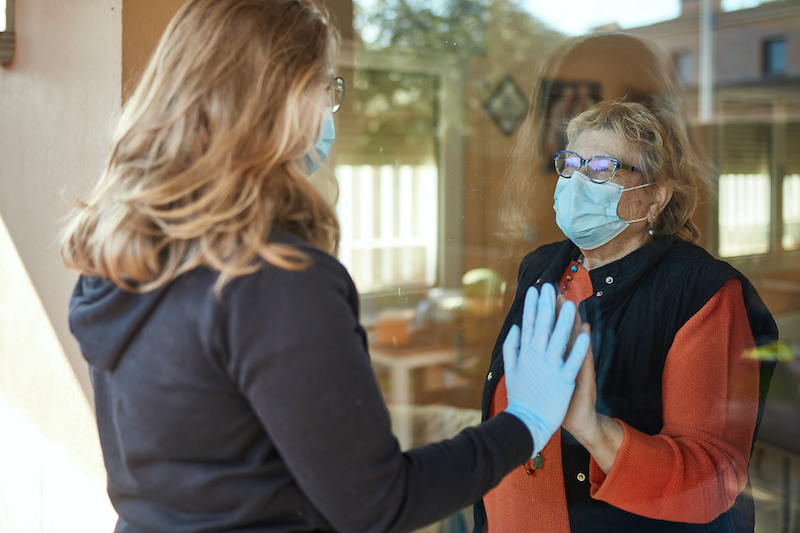
Try these tips to help older adults with pandemic fatigue.
It has been more than six months since the COVID-19 pandemic began. The restrictions which have been set up to emphasize safety can start to wear on all of us, and while there is a normal longing to want to “get back to normal,” there is a new issue that’s impacting senior loved ones: pandemic fatigue.
Pandemic fatigue is a result of trying to regulate the many intense emotions we’ve been going through, such as anxiousness, fear, loneliness and isolation, and hopelessness. It’s exhausting and draining, and may present as:
- Difficulties with getting enough sleep and/or eating appropriately
- Problems with focusing
- Retreating from individuals we care about
- Becoming more argumentative or having a “short fuse”
- Feelings of stress, edginess, and lack of motivation
- Struggling with racing thoughts
The balance between maintaining the physical safety and health we achieve by self-isolating, and also the emotional health we realize through socialization and participating in meaningful activities, is not simple to navigate. To help, we’ve provided some coping tips for older adults with pandemic fatigue:
- Accept and acknowledge your emotions. A variety of emotions are perfectly normal in a period of time that feels anything but normal. It can be helpful to name how you’re feeling – even writing it down. Then make an effort to refocus your thoughts to techniques that can help. For example, if you are feeling out of control, focus your energy on things that you can easily control.
- Improve your inner dialogue. It’s natural to wrestle with numerous negative “what if” scenarios, which produce heightened anxiety. Try incorporating a positive slant to your thoughts; for example, in the place of thinking, “What if I come down with COVID-19?” tell yourself, “I’ve been doing everything I can to protect myself and stay safe.”
- Stay connected. While social distancing and staying away from one another has become the new normal, it is crucial to keep up social connections in ways which are safe: telephone calls, emailing and chatting on social media, writing letters, and using technology for virtual get-togethers, classes, religious services, etc.
- Turn off the news. It’s important to make sure you are updated on the current recommendations, guidelines, and status of the virus, yet it’s also very easy to quickly become inundated with too much information. Try to limit your news watching to a maximum of an hour each day, while making sure the source you’re gaining information from is trustworthy.
- Take care of yourself. Create a routine that includes no less than seven hours of sleep per night, thirty minutes of exercise each day, and a healthy diet. You’ll be supporting both your emotional state and your immune system by simply making good lifestyle choices.
Home With You Senior Care, experts in home care in Owings Mills, MD and the surrounding areas, is always here to partner with you in providing dependable, trusted senior care services. Our home care services are delivered within the safety and comfort of home, helping older adults increase emotional, physical, and social wellbeing. Whether the need is for just a few hours each week of respite care that will allow family caregivers to rest and recharge, or as much time as needed, up through and including full-time care, contact us online or give us a call at 410-756-0959 to learn more about our home care in Owings Mills, MD and surrounding areas. Visit our Locations Served page for a full list of areas where we offer service.
